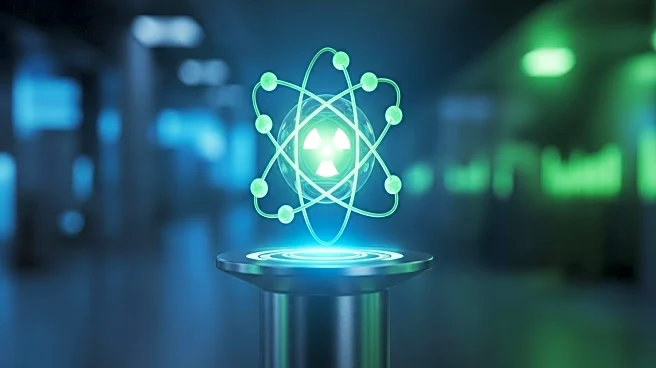What's Happening?
enCore Energy has announced that its Dewey Burdock uranium project in South Dakota has received Fast-41 approval, making it the first critical minerals project in the state to be included in the federal fast-track permitting system. The project, located in Custer and Fall River counties, utilizes in-situ recovery technology to extract uranium from subsurface sandstone ore bodies, minimizing surface disturbance. enCore Energy, which holds both mineral and surface rights for the 4,281-hectare site, aims to expedite the permitting process and advance the project towards development and operation. The Fast-41 program, established under the Fixing America’s Surface Transportation Act, is designed to accelerate permitting for priority infrastructure and critical mineral projects.
Why It's Important?
The approval of the Dewey Burdock project under the Fast-41 program is significant for the U.S. nuclear fuel supply chain, as it supports the domestic production of uranium. This development is crucial for enhancing energy security and reducing reliance on foreign uranium sources. The project’s advancement could also stimulate economic growth in South Dakota, creating jobs and fostering local industry development. Additionally, the use of in-situ recovery technology represents a more environmentally friendly approach to uranium extraction, aligning with broader sustainability goals in the mining sector.
What's Next?
With Fast-41 approval, enCore Energy will work closely with the permitting council and the Nuclear Regulatory Commission to advance the Dewey Burdock project. The company plans to expedite the permitting process and move towards the development and operational phases. Stakeholders, including local communities and environmental groups, may engage in discussions regarding the project's impact and benefits. The successful implementation of this project could set a precedent for future critical mineral projects seeking fast-track permitting.
Beyond the Headlines
The inclusion of the Dewey Burdock project in the Fast-41 program highlights the growing importance of critical minerals in U.S. infrastructure and energy strategies. This move may encourage other states to pursue similar fast-track approvals for their mineral projects, potentially reshaping the landscape of domestic mineral production. Furthermore, the project's environmentally conscious extraction method could influence future mining practices, promoting sustainable development in the industry.










